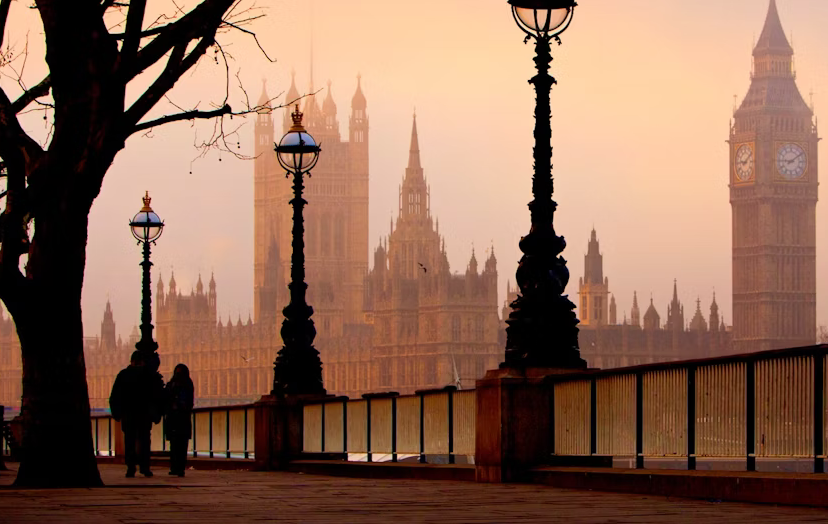By: Dennis Hoover
In its classic form, American exceptionalism is the notion that the United States has a special destiny given by divine providence to be the world’s example, vanguard, and champion of liberty—including a particular priority on religious liberty. But today more than ever, religious freedom needs all the friends it can get. America cannot and should not stand alone in defending this fundamental right. Fortunately, help is on the way. Indeed, June featured two milestones in a growing global movement to promote international religious freedom (IRF).
First, on June 3, the European Parliament Intergroup on Freedom of Religion or Belief and Religious Tolerance issued its first Annual Report, which features detailed reporting and recommendations on religious freedom around the world. The Intergroup previously existed only as a “working group,” but in January of this year, it was upgraded to a more formal status within the European Parliament, consisting of a Bureau of MEPs and a secretariat.
Second, on June 15, the new International Contact Group on Freedom of Religion or Belief held its founding meeting in Brussels. The Contact Group brings together likeminded representatives of the foreign ministries of over 20 countries. It parallels another initiative launched last fall in Norway, the International Panel of Parliamentarians for Freedom of Religion or Belief.
Granted, with their freight train names and acronyms (“IFoRBRT” doesn’t exactly roll off the tongue), these bodies may seem like obscure pieces of international bureaucracy. But, taken together, they represent much-needed, new institutional commitment and capacity for the cause of IRF. They also reinforce the remarkable trans-Atlantic momentum that has been building in recent years. Canada, the EU, and several individual European countries (among them Britain, Norway, The Netherlands, Italy, Austria, and Germany) have all directed new attention and resources to issues of religious freedom and religious engagement in their foreign policies.
These developments are important not only for what they are but also for what they are not—that is, not American. The United States was out in front of other liberal democratic countries by about a decade and a half, having passed the International Religious Freedom Act back in 1998. Key components of the act included a new position of ambassador-at-large, an Office of IRF within the State Department, and the independent US Commission on IRF.
Serious institutional investments by the world’s only superpower were, on the one hand, a blessing, but on the other hand, the perception of “Lone Ranger” American unilateralism was also a curse. The relative paucity of multilateral backing made it too easy for critics at home and abroad to dismiss the whole effort as an idiosyncratic outburst of American exceptionalism.
Today’s internationalization of IRF policy comes not a moment too soon and holds great potential in at least two ways. First, it may help dispel long-standing stereotypes, which hold that IRF policy is: a species of American cultural imperialism; a special-interest hobbyhorse of right-wing American evangelicals; special pleading for persecuted Christians; really about Christian proselytism; reflective of an overly individualistic (Protestant-influenced) definition of “religion”; and prone to unsophisticated name-shame-blame rhetoric and clumsy threats of unilateral sanctions.
None of these criticisms are entirely fair, but they persist and undermine US diplomacy on behalf of religious freedom concerns. European and Canadian diplomats do not begin with nearly this same amount of baggage in tow. Their active involvement in IRF issues confirms what movement veterans have argued all along, which is that religious freedom is a genuinely international value. It belongs not just to America but to any country that takes seriously its commitments under the Universal Declaration of Human Rights and the International Covenant on Civil and Political Rights.
Second, new players in the IRF policy field might have distinct comparative advantages when it comes to historical experiences, narratives, and policy models that resonate outside the West. Unlike the United States, with its history of Protestant dominance and high degree of separation of church and state, many countries around the world share more in common with Europe and Canada—that is, they have (or at least perceive themselves as having) more serious political problems with religious minorities, and their political cultures and legal systems allow for numerous interconnections between religion and state.
None of this is to suggest that the legitimately exceptional aspects of the American experience be ignored in the diplomatic toolbox. For example, the history of Roger Williams’ expulsion from Puritan Massachusetts and his founding of Rhode Island as a bastion of religious liberty is an especially compelling narrative. But in today’s global context of growing religious repression and conflict, we should also welcome the rise of “unexceptionalism” in religious freedom promotion.
Dennis Hoover is editor of The Review of Faith & International Affairs and vice president for research and publications at the Institute for Global Engagement.
This piece was originally authored on July 7, 2015 for the Religious Freedom Project at Georgetown’s Berkley Center for Religion, Peace, and World Affairs.
THE RFI BLOG

Religious Freedom Is Back on the UK’s Agenda

Be More Faithful, Become More Resilient: An Invitation to Religious Institutions

How Soccer Reveals Different Meanings Of ‘Secular’ In France And The US

RFI’s Ismail Royer Meets with Delegation from India

Protecting the Unborn, Mothers, and Medical Ethics: The Stakes of Arkansas’ Amendment
CORNERSTONE FORUM

Public Bioethics & the Failure of Expressive Individualism

Religious Liberty in American Higher Education

Scotland’s Kate Forbes and the March of Secularism

70 Years of Religious Freedom in Sweden: Prospects and Challenges


